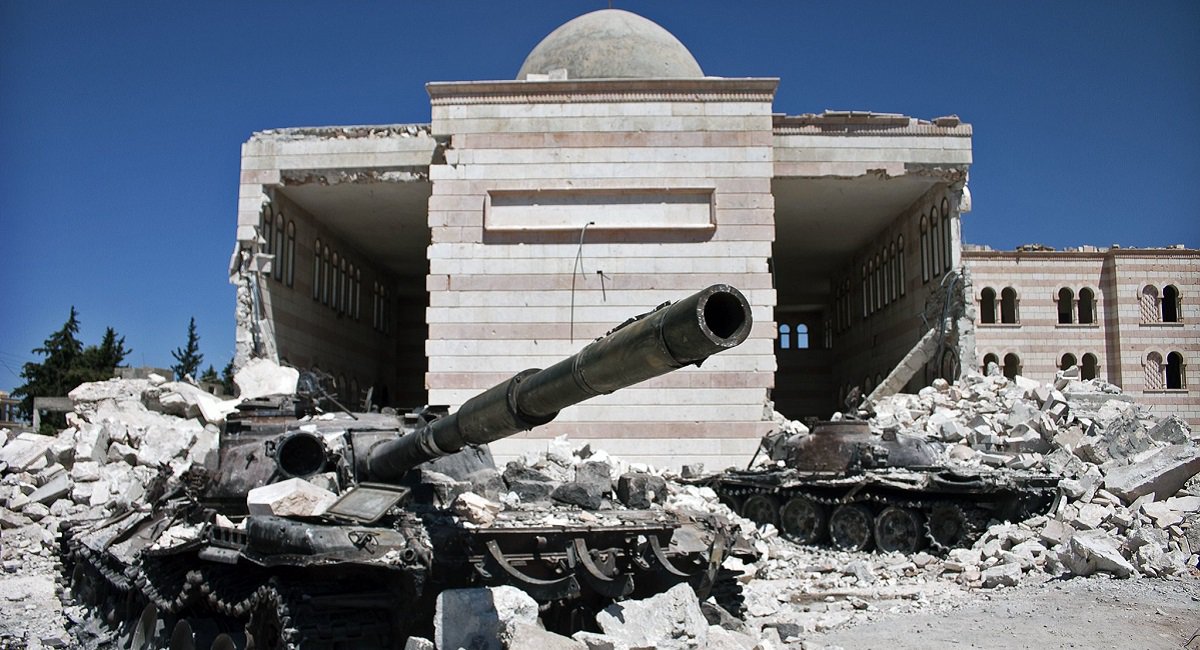

Photo by Christiaan Triebert (CC)
Ten years after the start of the Arab Spring, the Tawazun Blog offers an opportunity to reflect on the past, present, and future of civil-military relations in Arab states.
December 17, 2020, marks ten years since Tunisian fruit seller Tareq Bouazizi immolated himself, sparking a series of events now called the Arab Spring. In some ways, these events fundamentally altered the way that military forces and societies interact in Arab states, but in other ways relations between civilian and military authorities remain surprisingly unchanged. Some states have become more militarized, and others less, some wracked by civil conflict and others more stable. Arms imports in the region expanded dramatically, and a clutch of emerging regional powers flexing their military muscle has made defense affairs even more salient.
The Tawazun Blog seeks to make sense of these interlocking puzzles. It publishes analysis, insights, and reactions on civil-military relations and defense affairs in Arab states. Its mission is to engender dialogue and understanding between civilian defense professionals and military officers in the Arab world, aiming to increase transparency, efficiency, and effectiveness in defense sectors across the Middle East and North Africa region.
The last decade has been one of the most turbulent in an already violence-prone region, and decisionmakers can do no worse than to discuss how defense affairs have changed or remained the same and what this means for the present and future. The Tawazun Blog offers an opportunity to do this, recognizing that there has historically been a taboo against discussing defense affairs in many Arab states. The ten years since the Arab Spring have seen a weakening of this taboo, due in part to institution-building and engagement, but—more importantly—to the gradually expanding role of civilians in defense affairs in Tunisia, Morocco, and elsewhere. This offers an opening to engage these critical issues through open, dispassionate analysis.
A Wide Audience
The primary audience for the Tawazun Blog is those who have a stake in defense affairs in the region. Contributors are drawn from military officers, civilian defense officials, scholars, and media commentators, writing in either English or Arabic. All content in one language is translated into the other language, and condensed versions of posts are published on various social media platforms. The goal is to maximize the blog’s reach while maintaining a focus on issues that have rarely been discussed previously, but that affect the lives of all those living in the region.
In order to maintain this reach, the Tawazun Blog adheres to an open submission policy. It welcomes policy recommendations in submissions, but these recommendations should be based on evidence and analysis, rather than merely being the official position of an actor or organization. Likewise, the blog is not the place for scholarly debate or general commentary on the region’s perceived ills, but a forum to discuss best practices and efficiency improvements in defense affairs. The blog is committed to intellectual rigor and defense policy relevance, and because debates should be open and honest, authors may request anonymity, but must verify their identity to the editorial team.
Submissions
Submissions can be made using the submission form. All content must be original. The central argument should be clear from the outset of a submission, and evidence should be presented in a balanced and transparent manner. Submissions must draw a clear link to a policy-related threat, challenge, or opportunity related to civil-military relations or defense affairs in one or more Arab states. This encompasses a wide range of substantive areas, including (but not limited to):
- Civilian oversight and defense expertise
- Capability development and defense reform
- Defense cooperation and security assistance
- Military involvement in politics or the economy
- Military organization, education, or training
- Defense acquisitions
- Defense engagement
- Conduct of military operations
- Gender equality and inclusivity in defense
- Defense planning and resource allocation
- Formulation of defense policy and strategy
- Nonstate forces, from combat to reintegration
- Military recruitment, retention, and human resources management
Submissions should adhere to Tawazun standards in terms of both substance and form. Submissions longer than 800 words are not considered. Authors should use embedded links to source statements of fact that are not common knowledge. No response within two weeks means that a submission was not accepted for publication.
An Opportunity
The Tawazun Blog is an opportunity to understand and, perhaps, move toward solutions for the interlocking defense challenges of the Arab world. The hope is that open discussion and independent, evidence-based analysis will arm defense practitioners and civilian policymakers with the knowledge and common understanding to navigate the next region-wide crisis and build a more prosperous, stable future.
Nathan W. Toronto is commissioning editor for the program on Civil-Military Relations in Arab States at the Carnegie Middle East Center and the author of How Militaries Learn: Human Capital, Military Education, and Battlefield Effectiveness



